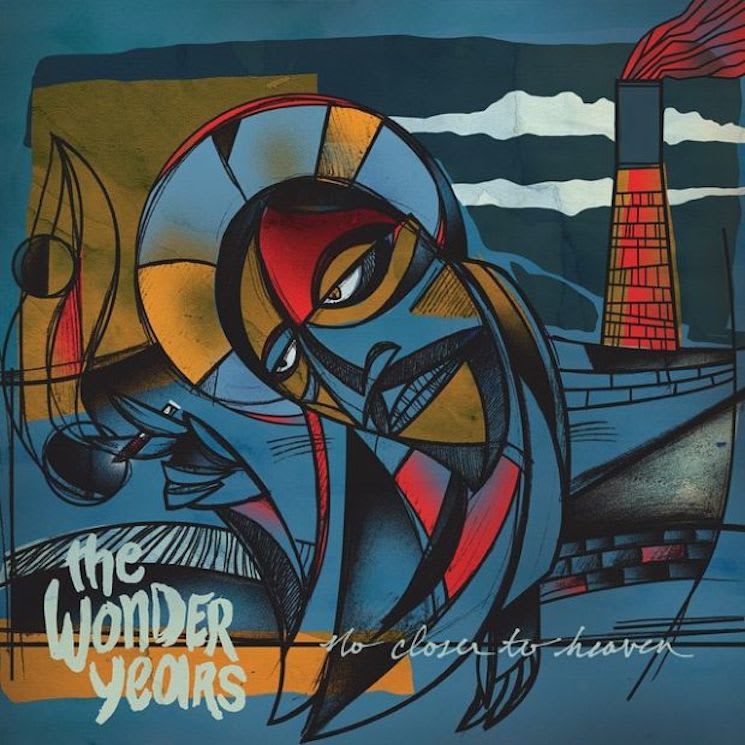The Wonder Years lead singer Dan "Soupy" Campbell spent three records exploring his own depression, subject matter that helped the Philadelphia-band quietly climb to the top of the current pop-punk heap. Shifting only slightly in terms of source material, No Closer to Heaven is reportedly a concept album about the loss of a loved one. It finds Campbell abandoning the plainspoken style of the past and diving deeper into metaphor, while simultaneously trying to find larger context for his pain.
The record plays more like a collection of songs with similar themes than a straightforward narrative, with grief acting as the glue holding it together. While the band wear the new clothes well, for the most part, it's slightly derailed when Campbell conflates his own experiences with larger social issues. On "Cardinals" he likens a bird that flew into his window to the death of the American Dream, singing ham-fisted lyrics like "I know what you saw in that reflection of light / On the glass was a better life… American broken promises."
What's most surprising about the album, though, is the lack of energy. Campbell suffered a streak of writer's block during its creation and it shows — some songs feel forced and there are far too many plodding half-time numbers like "A Song for Patsy Cline" and "Stained Glass Ceilings" (which features guest vocals from letlive.'s Jason Aalon). The band want listeners to know that these songs are capital "I" Important. Instead, if feels as if they wrote a half-dozen epic album closers but forgot to write the rest of the record.
The Wonder Years have always felt like a band just one album away from breaking beyond the world of Alt Press and Warped Tour. As promised, No Closer to Heaven pushes the group into new musical territory. But in making that leap, they stumble, and the multitude of ideas they present never really gel into a coherent whole. There's enough here to satiate fans — "I Don't Like Who I Was Then" is as good as their best work — but there's an underlying sense that for the first time, the Wonder Years have missed the mark.
(Hopeless Records)The record plays more like a collection of songs with similar themes than a straightforward narrative, with grief acting as the glue holding it together. While the band wear the new clothes well, for the most part, it's slightly derailed when Campbell conflates his own experiences with larger social issues. On "Cardinals" he likens a bird that flew into his window to the death of the American Dream, singing ham-fisted lyrics like "I know what you saw in that reflection of light / On the glass was a better life… American broken promises."
What's most surprising about the album, though, is the lack of energy. Campbell suffered a streak of writer's block during its creation and it shows — some songs feel forced and there are far too many plodding half-time numbers like "A Song for Patsy Cline" and "Stained Glass Ceilings" (which features guest vocals from letlive.'s Jason Aalon). The band want listeners to know that these songs are capital "I" Important. Instead, if feels as if they wrote a half-dozen epic album closers but forgot to write the rest of the record.
The Wonder Years have always felt like a band just one album away from breaking beyond the world of Alt Press and Warped Tour. As promised, No Closer to Heaven pushes the group into new musical territory. But in making that leap, they stumble, and the multitude of ideas they present never really gel into a coherent whole. There's enough here to satiate fans — "I Don't Like Who I Was Then" is as good as their best work — but there's an underlying sense that for the first time, the Wonder Years have missed the mark.
